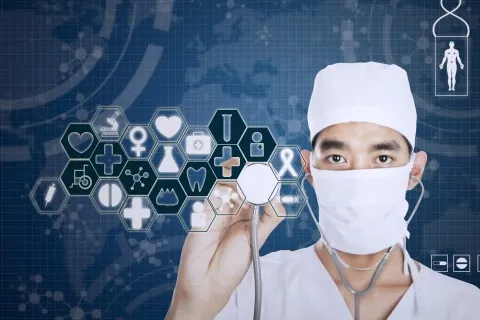
Electronic medical records contribute to success of private hospital networks
Access to patient information at any time, on any device, from anywhere supports premium patient care and customer service.
As the number and quality of hospitals and clinics in many Asian countries is increasing, private hospital networks are leading the way with electronic medical record (EMR) systems that also provide rich clinical and patient administration functionality.
According Kerry Stratton, Asia Pacific Managing Director for InterSystems, a global leader in software for connected healthcare, EMR systems enable healthcare providers to deliver premium patient care and customer service – both very important outcomes in a competitive market.
Private hospitals and clinics are also looking to EMR systems to make them more efficient and increase the number of patients they can handle, and to ensure that proper procedures are followed, says Stratton. “Many groups are opening new healthcare facilities on a regular basis. To be successful, they need to operate at the highest international standards from day one and to quickly become profitable.” Luye Medical Group, for example, recently selected the InterSystems TrakCare® unified healthcare information system to support its growth, with plans to open more than 20 specialist hospitals and clinics in China.
By deploying a data center with a single instance of TrakCare, Luye Medical Group can share all patient information throughout its network. Healthcare professionals can access that information from any Internet-connected device, at any time and from anywhere.
Smartphone and tablet access
Accessing patient information on smartphones and tablets is not only convenient and attractive for doctors. It also contributes to more efficient patient administration. In a recent pilot for a new chain of healthcare clinics, nurses with iPads used TrakCare to triage patients as they came through the door, making sure that urgent cases could be seen immediately and other patients were also looked after properly.
This is part of a trend to move away from fixed computers to easy-to-use devices that can speed up the care giving process, says Stratton. Because InterSystems TrakCare is Internet-based and accessed via standard Web browsers that users are already familiar with, they have a head start when using the system on new devices.
InterSystems is continuing to invest in user interface technology, he says. “Just as consumer-based Internet services can detect what sort of device you are using and customize what is displayed, TrakCare will understand how best to present the information that healthcare workers need.”
TrakCare has also supported the rapid expansion of the United Family Healthcare (UFH) group in China for many years. Clinicians there have immediate access to patient records – including emergency care cases – at any of UFH’s many hospitals or clinics.
Advanced clinical functionality – doctors receive alerts including potential drug interactions and patient allergies, for example – helps ensure the best and safest patient care and attracts highquality medical personnel. TrakCare offers data quality control and audit features to support UFH’s Joint Commission International (JCI) quality accreditation, helping to attract customers. And centralized management and appointment scheduling services facilitate high levels of customer service and allow UFH to manage workloads across its healthcare network.
Measurable KPI improvements
According to Dr. Yanwar Hadiyanto, CEO of the Rumah Sakit Pondok Indah (RSPI) group in Indonesia, adopting international clinical practices like electronic medication management allows hospitals to provide a faster, safer, and more efficient service, while supporting clinicians with robust decision support. This means, from a business point of view, that RSPI is able to provide differentiated healthcare services to its patients.
Since implementing TrakCare, RSPI has achieved measurable improvements in key performance indicators (KPIs), including laboratory, radiology, pharmacy, and health check-up turnaround times. Doctors say their patients have responded very positively. With an EMR, patients no longer need to bring copies of test results, X-rays or MRIs along with them to consultations, whichever hospital they attend.
Electronic ordering and real-timecommunications have reduced waiting times. With improved laboratory and radiology turnaround times patients can wait for results in the comfort of a cafeteria or lounge before returning to doctors’ consulting rooms. They no longer have to pick up test results, and any medications prescribed by doctors are waiting for them in the pharmacy.
“When people talk about electronic medical records you often hear about patient-centric care,” says Stratton. “For private hospitals and clinics, that means offering premium levels of service, something that users of TrakCare are doing very successfully in Asia.”











 Advertise
Advertise













